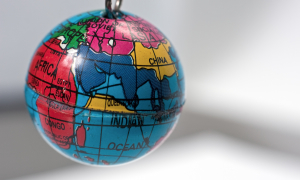 About two thirds of large countries have some form of e-cigarette regulation, and they tend to control the products using existing laws relating to tobacco or nicotine, according to new research.
About two thirds of large countries have some form of e-cigarette regulation, and they tend to control the products using existing laws relating to tobacco or nicotine, according to new research.
Four American scholars examined the e-cig regulations of 102 nations, including those that contributed to last summer’s report for the World Health Organization’s Framework Convention on Tobacco Control (WHO FCTC) as well as a handful of other large economies.
Of those, 70 have official policies on e-cigs, mostly implemented through existing nicotine or cigarette laws.
One effect of this practice is that many countries make a distinction between nicotine-containing and nicotine-free e-cigs, according to the researchers from the Institute for Global Tobacco Control at the Bloomberg School of Public Health, Johns Hopkins University, Baltimore, Maryland.
Many countries have placed restrictions on advertising and promotion of e-cigs, they also observed, but fewer have put limits on sponsorship by e-cigarette companies.
Their research was summarised in a paper, “Global approaches to e-cigarette regulation”, presented to the Society for Research on Nicotine and Tobacco (SRNT) at its Philadelphia conference last week by authors Ryan David Kennedy, Ayodeji Awopegba, Elaine De Leon, and Joanna E. Cohen.
What This Means: There has been surprisingly little academic work looking at the broad global picture of e-cigarette regulation (in contrast to the intensive study given to tobacco control).
Of course it does not illuminate the details where challenges – and opportunities – often lie for both regulators and business, but even generalisations can be helpful in predicting the direction of future regulation, and identifying the anomalies in existing laws that could be changed. We hope to see more research like this.
– Barnaby Page ECigIntelligence staff
Photo: Horia Varlan






